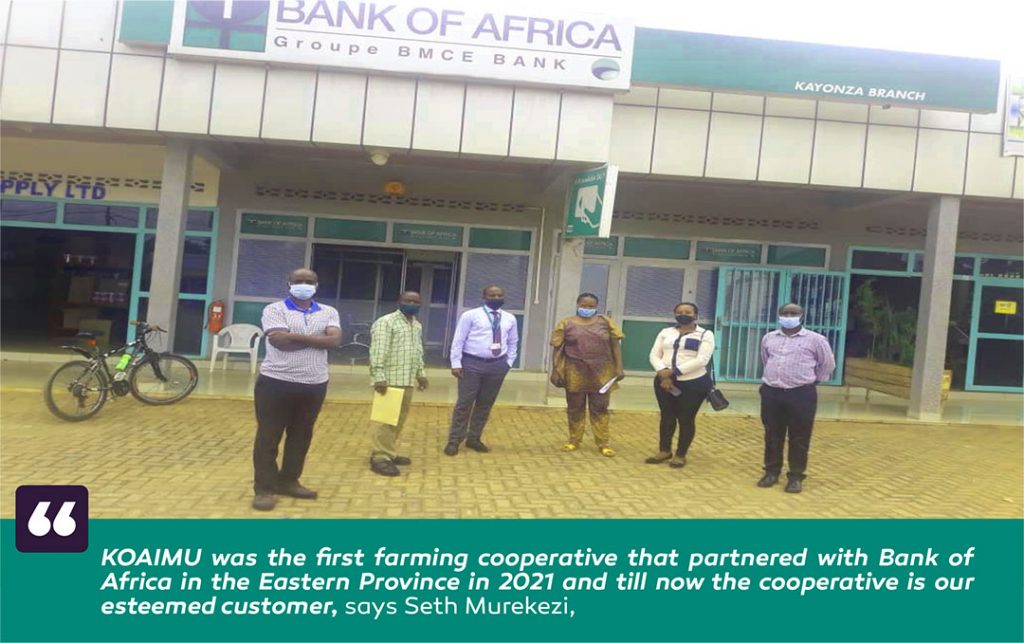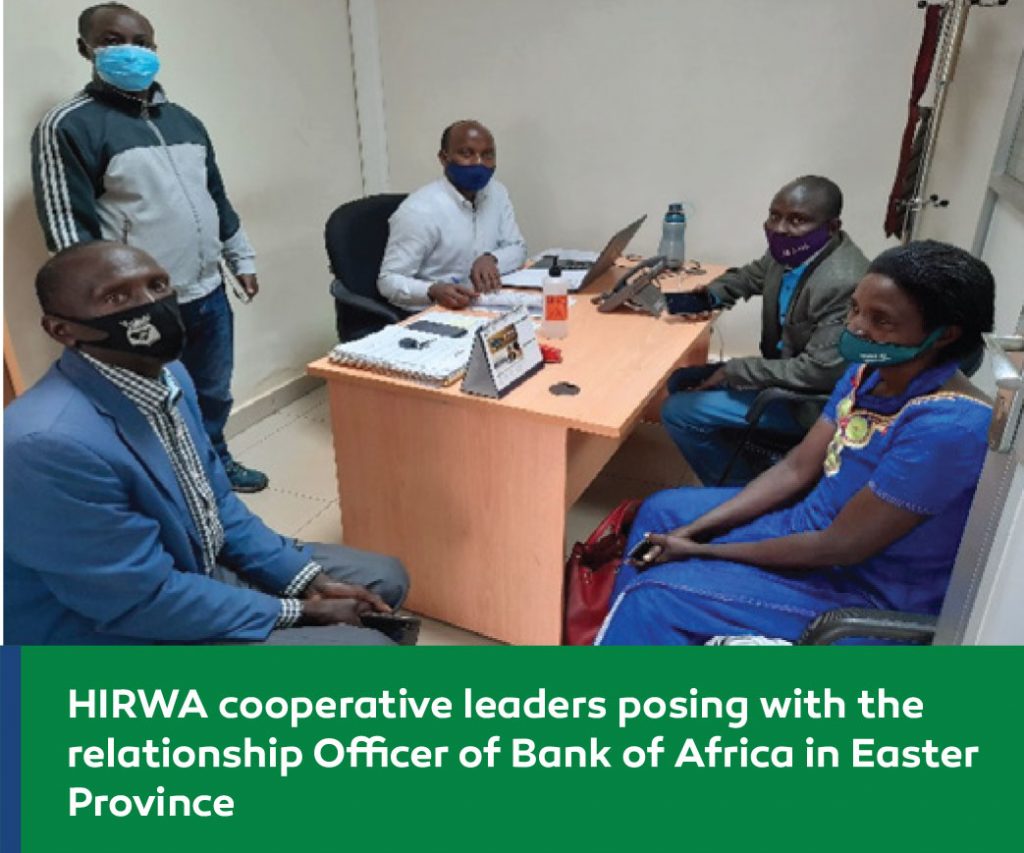Bank Of Africa helps farmers
Bank Of Africa helps farmers in Eastern Province pivot from subsistence farming to market-oriented agriculture.
To eradicate beliefs about instability in agriculture and promote financial partnership, the Government of Rwanda has invested in microfinance through SACCOs (Saving and Credit Cooperative.) The new investment aims to increase financial inclusion of the rural population and attract commercial financial institutions to rural areas, where opportunities for financial partnerships previously lacked.
The formation and strengthening of farming cooperatives have also been a driving tool to move from subsistence farming to market-oriented agriculture. Since these two changes have taken place, cooperatives have been able to open bank accounts, save money, and access small loans to purchase inputs for cooperative members.
Historically, access to finance has limited the conversion of agriculture from subsistence into a business across farming communities. Rwandan farmers were hesitant to partner with financial institutions because of a lack of collateral, financial knowledge, and a business-oriented mindset. And financial institutions were unlikely to invest in agriculture, as they considered it a high-risk business due to variables like climate change that limit its predictability and reliability.
The Clinton Development Initiative (CDI) has partnered with farming cooperatives in the Eastern part of Rwanda to collectively increase the quantity, quality, and consistency of their production while improving their access to market and finance. Through training on financial management, control, reporting, and loan management, cooperatives have acquired knowledge to work with microfinance institutions since 2018. Currently, 28 cooperatives have a partnership with eight formal financial institutions.
Cooperatives started their journey by building good credit history through the in-kind loan they received from CDI to access inputs. Cooperatives also relied on financial education to partner with financial institutions.
“KOAIMU (Koperative y’Abahinzi b’Ibigori n’Ibishyimbo mu Murenge wa Murundi) cooperative was able to secure a first loan of 2,000,000 Frw in 2019 from SACCO”, says Geoffrey Kayihura President of KOAIMU.
Later, KOAIMU repaid the loan within the due period, increasing cooperative confidence to partner with commercial banks to have access to a bigger loan amount.
In partnership with CDI, KOAIMU entered in negotiation with the Bank of Africa in early 2021 for a loan to aggregate maize production from its members. The bank was interested in partnering with the cooperative as it was the first farming cooperative requesting financial partnership in one of its operating areas – Eastern Province.
The Relationship Officer of Bank of Africa in Kayonza. In the same year, two cooperatives, KOAIMU and KOPUAIMU (Koperative y’Ubucuruzi bw’Amasaka n’Ibigori mu Murenge wa Mwiza) received and repaid loans of 9,500,000 Frw, approximately $9,500 from Bank of Africa.
The financial partnership allowed KOAIMU to aggregate maize production of its members and to invest in its Agri-dealership business, helping members access inputs on time. Under this arrangement, the cooperative advances inputs to farmer members, and the cooperative deducts an amount equal to the inputs received at the time of aggregating.
“Any member who wants farm input come and collect it at the cooperative office as an advance and s/he repays back when selling the production to the cooperative,” says Mukasine Jeanette, a member of KOAIMU cooperative. His counterpart, Nsengiyumva Jean Pierre, a member of KOAIMU as well, adds that “Our families benefited a lot because we cannot fail to pay our children’s school fees and health insurance for the whole family because our cooperative advances us the money we need.”
The partnership between the Bank of Africa and farmer cooperatives expanded in March 2022: two more cooperatives received a loan from the Bank of Africa to do maize aggregation. They successfully repaid the loans in June 2022, right after the end of the selling seasons.
As financial inclusion is a cornerstone for reversing poverty, it is imperative that financial institutions partner with smallholder farmers to help them access high-quality inputs to increase their production and access a well-remunerated market to increase their wealth.
In addition, the financial partnership between cooperatives and financial institutions enhances business opportunities on both sides.



